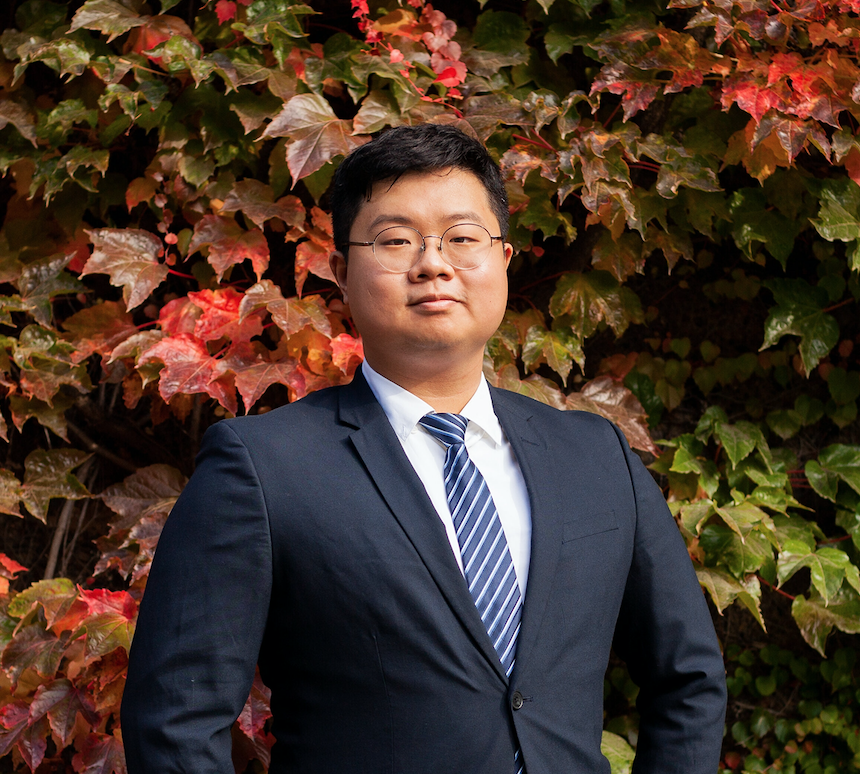|
One of the most significant side effects of international conflicts and wars is the displacement of the citizens, especially the family members. There are diverse causes that stimulate those unfortunate displacements - from economic reasons army mobilization to logistical difficulties on movement during the war. Regardless of the reasons behind it, the displacement of the citizens during the war results in the citizens in the post-war conflicts having more difficulties moving past the negative impact of the war. As World Health Organization (2021) says, the war may have physically ended between the countries, the displacement from the war leaves the civilians exposed to mental health issues.
That's why the ongoing Ukraine-Russian war is very concerning. Throughout the war, we have seen several Ukrainians moving across the country to find a safer place for them to survive from this war. Especially, around 3 million Ukrainians have moved to neighboring countries like Poland, the Czech Republic, or the United Kingdom to refuge until the war ends. (Koper and Gheorghiu 2022) Yet, we also hear news about the challenges that follow those journeys for survival. Fallon (2022) reports an increasing number of missing children around the border area of Ukraine while the citizens are moving to different countries and Williams (2022) further reports that human trafficking is further increasing during the journey of the displaced people. Even before the war has ended, it is not difficult for one to anticipate the divided families will have difficulties reconnecting with each other in the post-conflict Ukraine. It is not just the issue of Ukraine. Other post-conflict zones across the world, including Yemen or Chad all have faced the severe displacement of the people, which resulted in families having difficulties reuniting and getting back to their lives as it was before the war. (UNHCR 2020; UNHCR 2021) Then the logical question that follows is how can we support the people in post-conflict zones to reconnect with their families and friends. While social media and different online platforms are connecting many people in the international community together, it is also important to note that many people in the world do not have access to the internet or digital devices (International Telecommunication Union 2021). World Bank suggests that only about 35% of the people in less developed economies have access to digital devices or the internet. Considering the destruction of the infrastructure during the conflict, it is quite challenging for the post-conflict societies to have access to the internet that can connect themselves with separated families. Moreover, for the post-conflict zones in developing countries, with limited documentation of the citizens (De Medina-Rosales 2019), it becomes more challenging to find separated family members through the government. And that's why the experience from the Republic of Korea after the Korean war shares an essential lesson to the post-conflict areas of the contemporary world. In 1983, 30 years after the Korean war had ended, the Korean Broadcasting System (KBS) decided to run a special program called "Finding Dispersed Families (이산가족을 찾습니다)" aimed to connect the family members that are separated during the Korean war. This TV program which extended over 138 days, marking the 453 hours of airtime on the television. (KBS World 2015) Being one of the most extensive programs to reconnect the dispersed families through the tv, the Archives of the KBS Special Live Broadcast "Finding Dispersed Families" was inscribed as the Memory of the World by the UNSECO in 2015. (K. Lee 2015) The importance of this live broadcast is that it supported the reconciliation in post-war Korea through stimulating family reunions and thus allowed the negative legacies of the Korean war to fade away from Korean society. Until this live broadcast, there were limited resources for the Korean people to find their lost family members due to limited platforms to share information and communicate with each other. However, KBS, being the most prominent TV Station in Korea with wide networks within the country and worldwide, could serve as the singular platform through which everyone can share and find information about their lost family. Many displaced Koreans used KBS headquarters in Seoul as their meeting place with lost families and brought posters to the station so that it could be promoted via the television. (Lee 2018) With the single platform being established to support communication between families and friends, more people were encouraged to find their families and achieve the reunion. Through utilizing the interactive media event, 10189 families who have lost each other during the Korean War could be reunited. (Y. Lee 2015) Reconnecting the families through the television live broadcast had more meaning beyond connecting displaced people. With the large number of people watching the live broadcast together and listening to the stories of different displaced families, Y. Lee (2015) shares that the broadcast supported the Korean society to reconcile and unite together for the common cause. Although people may have different memories of the war, through watching stories of other families reuniting, people could emphasize the sufferings people had to endure because of the war and understand the importance of bringing families together - which ultimately builds solidarity. Furthermore, with the stories of different families being shared on various national and international media platforms, which both shares the tragedy of the war and the importance of the post-war family reconciliation, KBS Archive suggests that the program built the foundation for the official reunion of divided families between Republic of Korea and the Democratic Republic of Korea as well. Beyond connecting families, the live broadcast had a significant impact on curing the long-lasting misfortunes of the war and starting the process of reconciliation for more families in Korean society. The lesson from the Korean "Finding Dispersed Family" live broadcast is the importance of the "platform" during family reconciliation in post-conflict societies. In post-conflict societies where there is limited documentation or information about different people, it is vital to have a single platform in which people can share information and stories about themselves with many people so that they have a better chance of reuniting with their families. Especially in post-conflict societies where there are limited resources to communicate, utilizing the television or radio to bring everyone together can be an excellent platform for people to find their displaced families and friends together. Moreover, for post-conflict areas where social media may be available, using the unified hashtags (i.e., #familyfinder) can accelerate the process of family reunions. Furthermore, these platforms can develop into a space where people who may or may not be affected by the war can better understand the impacts of the war on the post-conflict communities, especially to the people living in those communities. In the long run, learning about these stories can build national and international solidarity to support the reconciliation and rebuilding of post-conflict societies, ensuring more communities can start building a brighter future faster. Family reconciliation is directed connected with the lives and memories of the people with the war. To ensure post-conflict areas move forward, the international community should place more effort on how we can bring families together to go back to their pre-conflict lives. Bibliography De Medina-Rosales, Fernando. 2019. “Obstacles to Accessing Civil Registration and Identification: NRC’s Field Experiences with Displaced Persons.” LSE Middle East Centre. May 18, 2019. https://blogs.lse.ac.uk/mec/2019/05/18/obstacles-to-accessing-civil-registration-and-identification-nrcs-field-experiences-with-displaced-persons/. Fallon, Katy. 2022. “Children Going Missing amid Chaos at Ukrainian Border, Aid Groups Report.” The Guardian. March 12, 2022. https://www.theguardian.com/global-development/2022/mar/12/children-going-missing-amid-chaos-at-ukraine-border-report-aid-groups-refugees. International Telecommunication Union. 2021. “Connectivity in the Least Developed Countries: Status Report 2021.” United Nations. United Nations. https://www.un.org/ohrlls/news/connectivity-least-developed-countries-status-report-21. KBS Archive. n.d. “Saengbangsong Isangajog-Eul Chajseubnida 생방송 이산가족을 찾습니다 [Live Broadcast Looking for Separated Families].” KBS Archive. Accessed March 15, 2022. http://family.kbsarchive.com/find_my_families/. KBS World. 2015. “UNESCO Recognizes 1983 KBS ‘Finding Dispersed Families.’” Korea Broadcasting System World. October 10, 2015. https://world.kbs.co.kr/service/news_view.htm?lang=e&Seq_Code=113835. Koper, Anna, and Olimpiu Gheorghiu. 2022. “Over 3 Million Have Fled Fighting in Ukraine.” Reuters, March 16, 2022, sec. World. https://www.reuters.com/world/close-3-million-have-fled-fighting-ukraine-2022-03-15/. Lee, Hanui. 2018. “138il Saengbangsong ‘Nuga I Salam-Eul~Moleusi~Nayo’ 138일 생방송 ‘누가 이 사람을~모르시~나요’ [Live Broadcast on the 138th ‘Does Anyone Know This Person?’].” Kyunghyang Newspaper. April 28, 2018. https://m.khan.co.kr/politics/politics-general/article/201804281546021. Lee, Woo-young. 2015. “Two Korean Documentary Heritage Holdings Inscribed in UNESCO’s Memory of the World.” The Korea Herald. October 10, 2015. http://www.koreaherald.com/view.php?ud=20151010000011. Lee, Yoo-mi. 2015. “Jwadam: ‘Isangajog Chajgi’ Saengbangsong Gihoegbuteo Gilog-Yusan Deungjaekkaji 좌담: ‘이산가족 찾기’ 생방송 기획부터 기록유산 등재까지 [Discussion: From Planning a Live Broadcast of ‘Finding Dispersed Families’ to Registering as a Documentary Heritage].” Newspaper & Broadcasting. Korea Press Foundation. December 2015. http://azine.kr/m/_webzine/wz.php?c=62&b=63476&g=. UNHCR. 2020. “Yemenis Displaced by Conflict Now Face Threats of Looming Famine.” United Nations High Commissioner for Refugees. December 11, 2020. https://www.unhcr.org/uk/news/briefing/2020/12/5fd337994/yemenis-displaced-conflict-face-threats-looming-famine.html. ———. 2021. “Displacement Leaves Families Struggling to Adapt in Lake Chad Region.” United Nations High Commissioner for Refugees. July 2, 2021. https://www.unhcr.org/uk/news/stories/2021/7/60dec77f4/displacement-leaves-families-struggling-adapt-lake-chad-region.html. Williams, Kieren. 2022. “Children Fleeing Ukraine Conflict ‘Disappearing’ at Borders, Aid Groups Claim.” Mirror. March 12, 2022. https://www.mirror.co.uk/news/world-news/children-fleeing-ukraine-conflict-disappearing-26452305. World Bank. n.d. “Connecting for Inclusion: Broadband Access for All.” World Bank. https://www.worldbank.org/en/topic/digitaldevelopment/brief/connecting-for-inclusion-broadband-access-for-all#:~:text=Only%20about%2035%20percent%20of. World Health Organization. 2021. “Mental Health and Forced Displacement.” World Health Organization. August 31, 2021. https://www.who.int/news-room/fact-sheets/detail/mental-health-and-forced-displacement.
0 Comments
Leave a Reply. |
Author
ByeongKyu is an International Relations student at the War Studies Department, King's College, London. He researched and wrote this article as part of the BizGees & War Studies Department Internship programme.
|

 RSS Feed
RSS Feed

